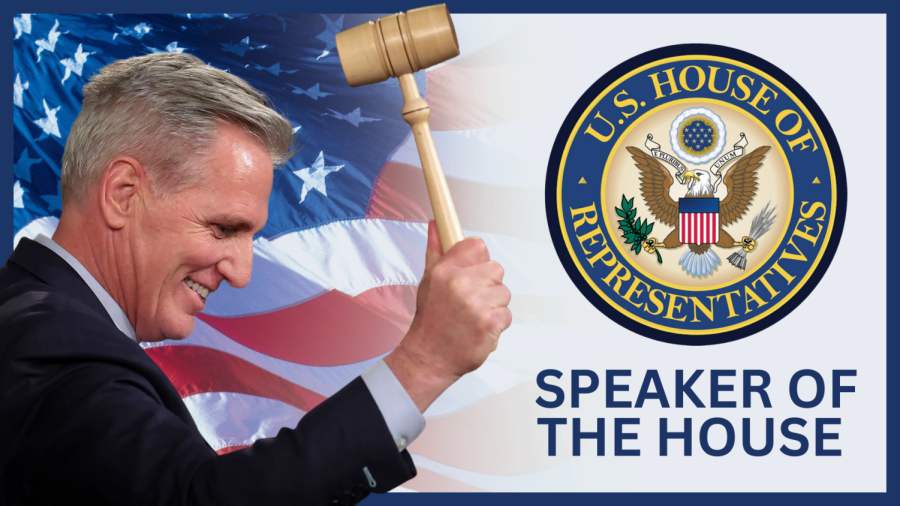Kevin McCarthy elected as Speaker of the House: what next?
Kevin McCarthy, serving California’s 20th District and acquiring the role of majority leader, is now third in line to the President.
In the past few weeks, the newly elected US House of Representatives faced a major challenge that stalled congressional activities and halted the transfer of power: electing the new Speaker of the House.
After 15 rounds of voting that took four days, Kevin McCarthy of the Republican Party came out victorious, acquiring the position that garnered national attention. However, this marks the longest Speaker election since the Civil War era of 1859.
“I really do not know why it took so long this year. Usually, I do not pay that much attention to these elections, but I kept seeing in the news how unprecedented this particular one was,” said Alekh Shah (‘24).
Many factors played into this election process, but most notably, Republicans hold a very slight majority within the House. This put McCarthy at a slight disadvantage, meaning that he needed to win the support of all but four Republicans to emerge successful.
“His main opposition throughout this entire process was radical Republicans, mainly a select 19 that voted for Jim Jordan instead,” said political enthusiast Aarav Kakad (‘24).
Far-right members, particularly those of the Freedom Caucus, deemed him insufficiently conservative and questioned his overall ability to reduce government spending and increase individual and states’ rights. As such, McCarthy, primarily facing opposition stemming from within his own party, was forced to relinquish certain powers and privileges if elected as the new Speaker.
“I know that a lot of the concessions he made included giving up a lot of positions to radical Republicans, mainly the House Rules Committee. This basically gives them control on how new laws are brought to the floor and gives them control over what type of legislation passes,” said Kakad.
To appease the Freedom Caucus, McCarthy offered to add more of their members onto the House Rules Committee as well as to support legislation introduced by various party members.
“I think that this pretty much will end in a stalemate, as we saw in past presidencies – where there is a lack of productive passage of legislation within the House and in government as a whole. I do not think they will be able to agree on a lot of decisions,” said Kakad.
Despite the controversial nature of this internal election, Americans around the country hope that both parties can come together in the name of unity, strengthening America rather than dividing it further.
“I am prepared to work with Republicans when I can and voters made clear that they expect Republicans to be prepared to work with me as well,” said President Joe Biden.
Your donation will support the student journalists in the AVJournalism program. Your contribution will allow us to purchase equipment and cover our annual website hosting costs.

